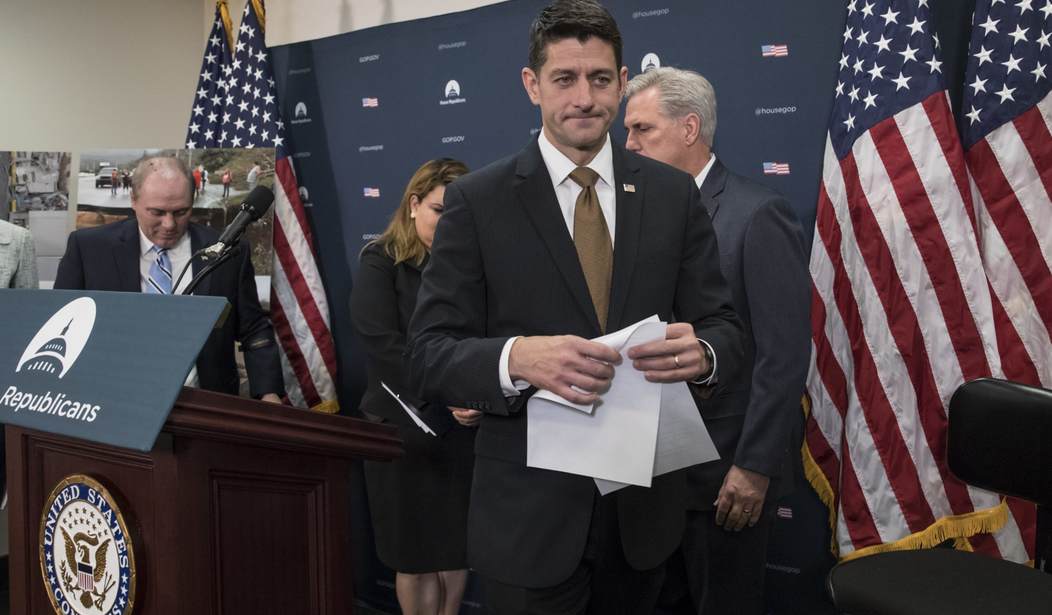WASHINGTON — Puerto Rico’s delegate to Congress told reporters on Capitol Hill today stressed there is still a “dire situation” on the island three weeks after category 5 Hurricane Maria battered the commonwealth.
Appearing at a press conference with GOP congressional leaders, Resident Commissioner Jenniffer González-Colón said that as of today more than 86 percent of Puerto Ricans are still without power and more than 44 percent still don’t have potable water.
Four hospitals remain closed. “At this time, the dialysis center are operating in generators, and that means lives are at risk,” she said. “We still have more than 11 bridges and roads that were completely destroyed. And we’re still receiving more than 11 million meals from FEMA, 7 millions of liters of water. But we still have a dire situation on the island.”
Lawmakers are planning on voting Thursday on a $36.5 billion aid package that addresses Puerto Rico as well as those hit by hurricanes Harvey and Irma in Texas, Louisiana and Florida. It also adds in funding for victims of California wildfires. The bill includes nearly $6 billion more in funding for FEMA than the Trump administration requested.
The House Appropriations Committee advanced the bill Tuesday night without any spending offsets sought by some conservative lawmakers.
“We’ve got the disaster supplemental that the Trump administration requested. They requested this last week,” House Speaker Paul Ryan (R-Wis.) said today. “We’ve got that supplemental coming to the floor tomorrow. We posted the bill yesterday. We think it’s critical that we pass this legislation this week to give the people in California the support that they need to fight these fires, to help the victims, and also to help the communities still recovering and dealing with the humanitarian problems.”
González-Colón said she’s been working with the administration on the bill. “We are pleased that there’s money included there to initially manage the situation of Puerto Rico, not only the situation that the local government is facing, having no liquidity during the next weeks, and this supplement will allow money in a loan program to get the money that is needed to continue the efforts of recovery,” she said.
“I just want to tell you that it’s not easy when you’re used to live in an American way of life, and then somebody tell you that you’re going to be without power for six or eight months,” she added. “It’s not easy when you are continue to suffer — see the suffering of the people without food, without water, and actually living in a humanitarian crisis.”
The delegate somberly noted that “we’re still counting the fatalities… as [of] today, 45 deaths, there have been counted.”
Ryan is planning to travel to Puerto Rico with González-Colón on Friday.
“It’s not the same thing we are hearing something in looking at the TV, but actually being there looking at the suffering, and knowing what are the mayors or the people’s questions — how the programs are functioning or not,” González-Colón said. “So for that, I’m really grateful and the people of Puerto Rico are grateful.”
Ryan said that “like we did in Katrina with New Orleans, when a local unit government gets its tax base wiped out, there is a loan program to help replace that tax base on an emergency basis — that’s something we just added to this bill, because their tax base has been wiped out, just like we did with respect to Katrina.”
“We noticed since the supplemental, another hurricane, a smaller one, but also the fires. So that’s why we want to make sure that on multi-fronts, hurricanes, local tax bases that — being wiped out, and fires, that we are responding now, so that our first responders have the tools they need,” he said. “We’ve got 17,000 personnel in Puerto Rico right now, between FEMA and the military… the Disaster Relief Fund is typically what finances that, and we’ve been burning through that pretty fast. So that’s why we need to put more money in the DRF as soon as possible.”









Join the conversation as a VIP Member